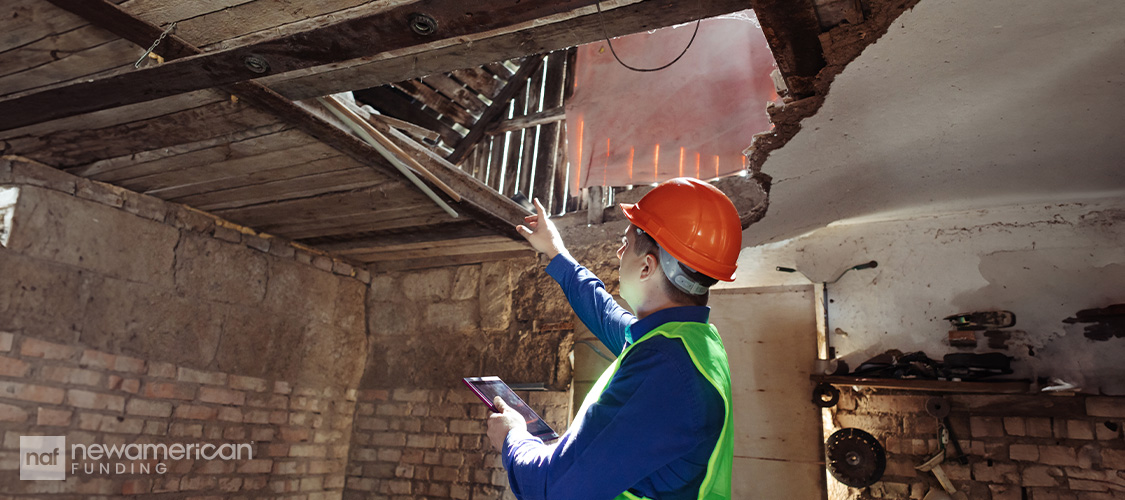Homeowners
After the Disaster: Advice for Homeowners After a Wildfire
December 13, 2024
Wildfires have become an increasing problem for homeowners across the country—not just in California. That’s why it’s important to know what to do if you have been affected by a natural disaster, such as a wildfire.
More than 2.6 million homes are at “moderate or greater” risk of wildfires in Western states, according to a 2024 report by the real estate analysis company CoreLogic. The cost to rebuild these residences would be $1.2 trillion.
More than 8.1 million acres had burned in 2024 alone as of Nov. 15, according to the National Interagency Fire Center. Some of these fires have been in states not normally associated with wildfires, such as Pennsylvania, West Virginia, Massachusetts, New York, North Carolina, and Virginia.
The steps you take after your home is damaged or destroyed by a wildfire may be crucial to your financial stability—and your peace of mind.
What to do after a wildfire damages your home
The first thing to do is ensure you and your family are somewhere safe.
It may be difficult to stay away when you want to know if your home was damaged and collect any belongings that may have escaped the flames, but you shouldn’t return to your home until the authorities allow you to do so.
If your home was impacted by the disaster, you may need to secure a new place to stay while you decide what to do with your home.
Reach out to your insurance company after a wildfire

The next step to reach out to your insurance company. While most policies do cover fires and wildfires, it’s best to make sure yours does before you file a claim.
A representative should be able to tell you what kind of documentation you need to apply for reimbursement for your losses.
Typically, the reimbursement process involves making an inventory of your possessions. Although this may sound like an impossible task, it may be easier if you go room by room, writing down all the items that you can remember in each.
If you’re really organized, you can save receipts for big-ticket items digitally and/or photograph recent purchases. You can store them on your phone, along with apps and contact numbers for your insurance company, mortgage lender, other emergency contacts.
At some point, someone from the insurance company will visit the home to inspect and assess the damage. They may even help to connect you with contractors who can do the repair work. You can speed up the process by visiting the property yourself and taking photos of the damage.
Rebuilding a home doesn’t happen instantly. It can take months, even years, depending on the extent of the damage not only to the home, but also to the area.
Sometimes, it may be more cost-efficient to sell the property and buy a different home. In other cases, the damage may not be as severe and rebuilding may make more sense for you and your family.
Managing your mortgage after a wildfire

Regardless of what you do, you will still have to continue to make mortgage payments on the property. This applies to homeowners whose residences are now uninhabitable.
Homeowners should contact their mortgage lenders or mortgage servicing companies (the company that collects their mortgage payments) to explore what sort of options may be available to them.
“We can suspend or delay payments, especially if you work at home and the disaster impacted your ability to earn a living,” said Roger Stotts, chief servicing officer at New American Funding. “Typically, we can suspend or delay the payments for three to 12 months, depending on your circumstances.”
But those forbearance payments are not forgiven. They are tacked onto the end of the mortgage, meaning it will take you that much more time to pay it off.
“This doesn’t impact your credit rating because we don’t report the payments as delinquent,” he said.
Homeowners who receive an insurance payout may be able to pay off the rest of their mortgage if the amount is large enough. They would be able to keep whatever additional money was left over.
There may be options available from your lender if you are having trouble making your payments.
If your home is destroyed and you would rather move than rebuild, you may be able to use the insurance money. If the payout is large enough, you could pay off the rest of your mortgage and keep any leftover money.
Securing financial aid after a wildfire
The major source of relief for those whose properties are damaged by wildfires and other natural disasters remains the Federal Emergency Management Agency (FEMA.)
The agency’s aid, which can include everything from water and food and medical supplies to home repair and home replacement and rental assistance, kicks in when a national disaster is declared.
Homeowners may be eligible to apply for FEMA aid for claims that their insurance company has denied.






 Smart Moves Start Here.
Smart Moves Start Here.